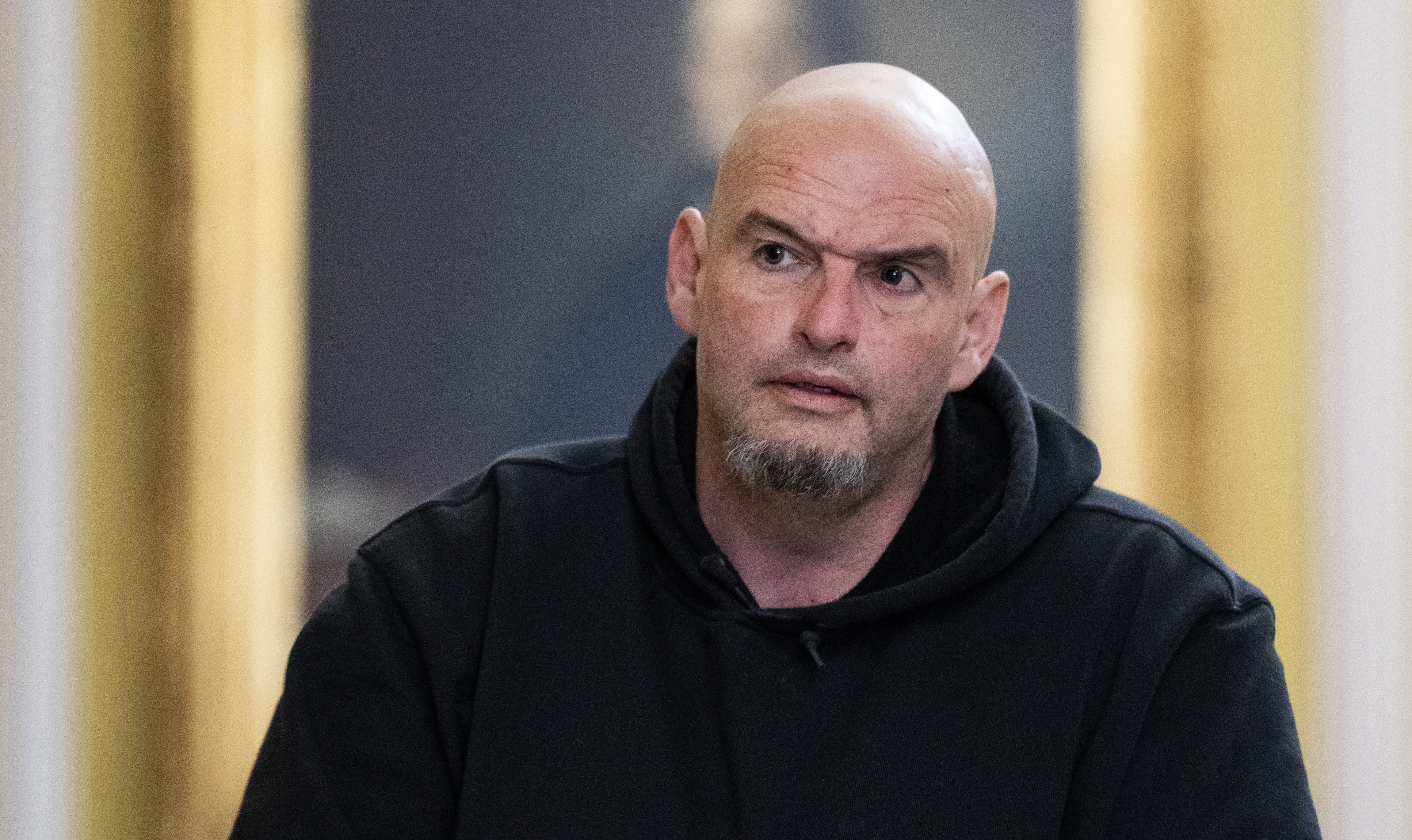John Fetterman Isolated? Clashes, Skipped Senate Duties Raise Concerns
John Fetterman: Is He Burning Bridges in the Senate?
Introduction: A Lone Wolf in the Senate Pack?
John Fetterman, Pennsylvania's Democratic Senator, burst onto the political scene with a unique brand – a blue-collar everyman with a penchant for hoodies and a refreshingly blunt style. But is that style translating into effective leadership in the Senate? Recent reports paint a picture of a senator increasingly isolated, clashing with colleagues and staff, and even skipping key Senate duties. Could this isolation be hindering his ability to deliver for Pennsylvania, and is it a sign of deeper issues?
Senator Murray's Unsuccessful Overture
According to reports, in the lead-up to a vote to confirm Pete Hegseth as defense secretary, Sen. Patty Murray, D-Wash., a respected and senior member of the caucus, wanted to discuss Fetterman's openness to confirming Trump’s pick. She reached out to schedule a one-on-one conversation.
But Fetterman reportedly refused to even speak with her. According to sources, Fetterman believed she wanted to "yell at him." Is this a sign of defensiveness, or a reluctance to engage in the necessary compromises that define Senate life?
A Pattern of Isolation?
The reported incident with Senator Murray isn't an isolated event. It's described as emblematic of how Fetterman has been operating in the Senate, according to interviews with numerous sources.
- Has Fetterman alienated potential allies?
- Is his unconventional approach hindering his ability to build consensus?
- Are communication breakdowns affecting his effectiveness as a senator?
Communication Challenges and Missed Opportunities
The Importance of Senate Relationships
The Senate is a place where relationships matter. It's a body where deals are made in hallways, compromises are forged over lunches, and alliances are built on mutual respect. If a senator refuses to engage with their colleagues, are they effectively hamstringing their own ability to legislate?
Is Fetterman Missing Out on Key Information?
When senators isolate themselves, they risk missing out on crucial information, perspectives, and opportunities to influence policy. Could Fetterman's reported isolation be contributing to a lack of understanding of complex issues?
The Impact on Pennsylvania
Ultimately, the question is: How does Fetterman's behavior affect the people of Pennsylvania? Is he effectively representing their interests, or is his isolation hindering his ability to deliver for his constituents?
Bringing Home the Bacon: The Power of Collaboration
Senators often rely on their relationships with colleagues to secure funding for their states, pass legislation that benefits their constituents, and navigate the complex world of Washington politics. Without those relationships, is Fetterman limiting his ability to "bring home the bacon" for Pennsylvania?
Defensiveness or Principle?
Standing Your Ground vs. Building Bridges
There's a fine line between standing your ground on principle and being stubbornly unwilling to compromise. Is Fetterman's behavior a reflection of unwavering conviction, or is it a sign of something else?
The Art of the Deal (in the Senate)
Politics is often described as the art of compromise. To get things done in the Senate, senators must be willing to negotiate, listen to opposing viewpoints, and find common ground. Is Fetterman embracing this essential aspect of Senate life?
Staffing Challenges and Turnover
A Revolving Door of Aides?
Reports suggest that Fetterman has experienced significant staff turnover, which can be disruptive and detrimental to the smooth functioning of a senator's office. High turnover can signal deeper issues related to leadership, management, or office culture.
The Importance of a Stable Team
A stable and experienced staff is crucial for a senator's success. They provide essential support, expertise, and continuity. When staff members leave, it can create a knowledge gap and make it more difficult to effectively serve constituents.
Mental and Physical Health Concerns
Fetterman has openly discussed his struggles with depression. Mental health challenges can undoubtedly impact a person's ability to perform their job effectively, especially in a high-pressure environment like the Senate. It raises an important question: are his challenges being adequately addressed, and is he receiving the support he needs?
The Stigma of Mental Health in Politics
There is often a stigma surrounding mental health, particularly in the political arena. It's crucial to create a supportive environment where politicians feel comfortable seeking help without fear of judgment or repercussions.
The "Everyman" Image: Authenticity or Performance?
Fetterman's appeal lies in his image as an "everyman" – a relatable figure who understands the struggles of ordinary Americans. But is that image authentic, or is it a carefully crafted performance? Is he being true to himself, or is he playing a role?
The Expectations of a Senator
While being relatable is important, senators are also expected to be knowledgeable, articulate, and effective leaders. Is Fetterman meeting those expectations, or is his "everyman" persona masking potential shortcomings?
The Long Road Ahead
Can Fetterman Adapt and Thrive?
The Senate is a marathon, not a sprint. It's a place where reputations are built over time, and where adaptability and perseverance are essential for success. Can Fetterman learn to navigate the complexities of the Senate, build meaningful relationships with his colleagues, and ultimately become an effective advocate for Pennsylvania?
The Future of Fetterman's Senate Career
Only time will tell what the future holds for John Fetterman in the Senate. Whether he can address his communication challenges, build stronger relationships, and effectively represent the interests of his constituents remains to be seen. The people of Pennsylvania, and the nation, are watching.
The Pressure Cooker of Washington D.C.
Is Fetterman Built For the Senate?
Washington D.C. is infamous for being a pressure cooker. The constant scrutiny, demanding schedule, and intense political battles can take a toll on even the most seasoned politicians. Is Fetterman truly suited for the unique environment of the U.S. Senate?
Coping Mechanisms For A High-Stress Environment
Senators must develop healthy coping mechanisms for dealing with stress, managing their time effectively, and maintaining a healthy work-life balance. How is Fetterman managing the intense pressures of his job, and is he prioritizing his well-being?
Reassessing Fetterman's Senate Trajectory
Fetterman's first term in the Senate marks a crucial juncture. The initial excitement surrounding his unconventional approach is now giving way to scrutiny over his effectiveness and ability to work within the established Senate framework. It's a moment for reflection, adaptation, and a strategic recalibration to ensure he can best serve the interests of Pennsylvania.
Conclusion: An Uncertain Future
John Fetterman's path in the Senate is becoming increasingly complex. Reports of isolation, communication breakdowns, and staffing challenges raise questions about his ability to effectively represent Pennsylvania. While his "everyman" image resonated with voters, the demands of Senate life require collaboration, compromise, and a willingness to engage with colleagues. Whether Fetterman can adapt and overcome these hurdles remains to be seen, but his success depends on it.
Frequently Asked Questions
- Why is it important for senators to build relationships with their colleagues?
Building relationships allows for collaboration, compromise, and the exchange of ideas, all crucial for effective legislating and securing resources for their state.
- How could Senator Fetterman's reported isolation affect Pennsylvania?
His isolation could limit his ability to advocate for Pennsylvania's needs, secure funding, and pass legislation that benefits his constituents.
- What are the potential consequences of high staff turnover in a senator's office?
High turnover can lead to a loss of institutional knowledge, disrupt office operations, and negatively impact the senator's ability to effectively serve their constituents.
- How can mental health challenges impact a senator's ability to perform their duties?
Mental health challenges can affect focus, decision-making, communication, and overall well-being, all essential for effective leadership.
- What steps can Senator Fetterman take to address the reported issues of isolation and communication challenges?
He can proactively engage with colleagues, prioritize open communication, seek mentorship, and ensure he has a stable and supportive staff.

